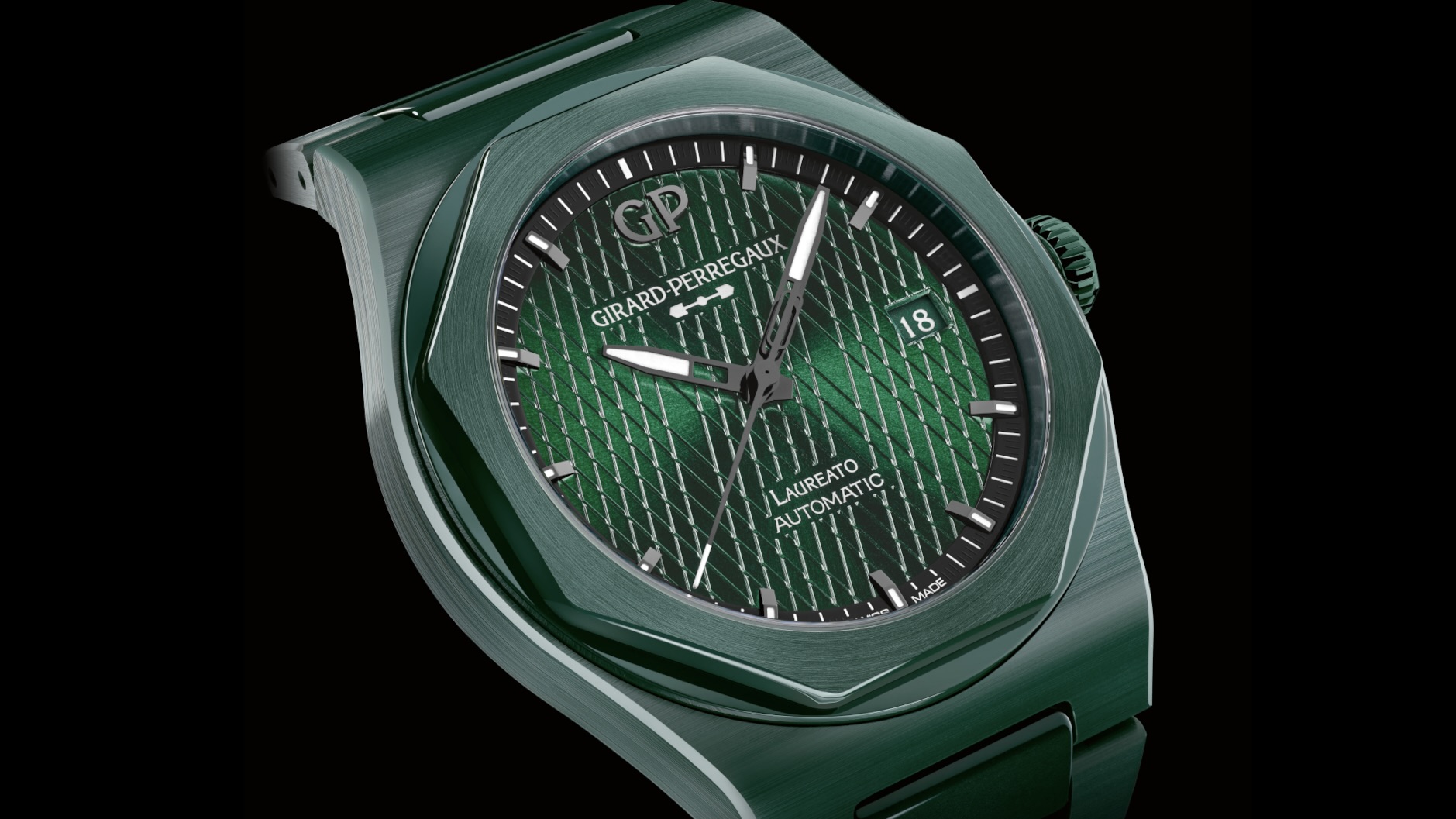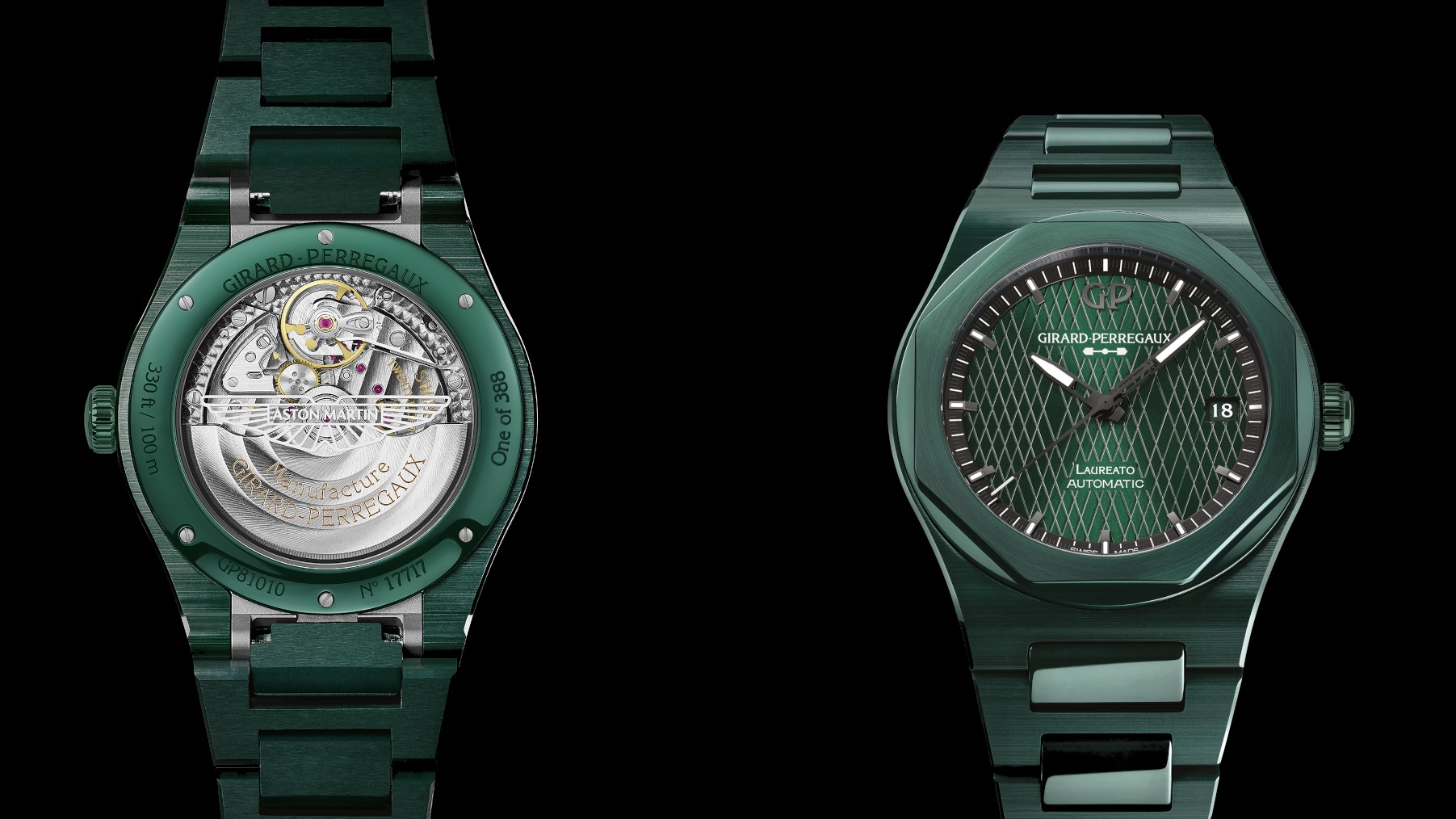
This Girard-Perregaux Laureato Aston Martin is the world’s greenest watch
In the most literal sense of the word, of course. But then it’s also pretty much invincible, so... environmental win?
This, as our headlines just keep giving away, is an extraordinarily green watch.
Not ‘green’ in the sense favoured by anyone referring to environmentally minded folk, but in the very literal sense. And we get the feeling that this particular Girard-Perregaux Laureato – the Green Ceramic Aston Martin Edition – is for people who are a bit funny about things in their own way. Don’t worry – we’ll explain.
But first, a primer: the Laureato (Italian for graduate), is Girard-Perregaux’s sports watch, in the vein of (and arguably on a par with) the Audemars Piguet Royal Oak or Patek Philippe Nautilus, but with the merest fraction of the success of either. Possibly because of name recognition, the fact it wasn’t designed by industry luminary Gerald Genta, or the ostensibly hoi-polloi quartz movement that Girard-Perregaux had designed for it. The Laureato came out during the ‘quartz crisis’ that took scores of storied manufacturers to the wall and nailed them there, yet GP’s reward for reading the room is to live in the shadow of the Royal Oak and Nautilus.
Now that we’ve lifted the Graduate up, time to drop him back down to earth.
So let’s attend to the lump of Kryptonite in the room. To buy this limited Green Ceramic Aston Martin Edition, our prospective Laureato buyer will need a) more than £20,000, b) to get in ahead of the ‘watch as an investment’ crowd, and c) an extraordinary affinity for extensive and very literal green. Because regardless of what it’s meant to symbolise (the colour used by British racing cars back in the days of polio and ‘confirmed bachelors’), it looks like the Green Lantern pulled a Pulp Fiction and smuggled this watch by hiding it somewhere personal.
What’s more, British Racing Green as an official racing colour only really existed between the 1930s and the 1960s, before the advent of advertiser liveries. Given its financial situation, Aston wasn’t exactly a motorsport mainstay throughout the post-Sixties period, but the RHAM/1 was red, white and blue, as was the AMR1. And when, after a 15-year hiatus, Aston returned to racing with the DBR9, the green returned... alongside Gulf Racing livery, and the chosen colours of whoever each team had convinced to put their money where their mouth was. And Girard-Perregaux, being Swiss and therefore not one to get involved, had nothing to do with any of it.
But now it’s 2023 and the F1 car fielded by the Aston Martin Aramco Force Cognizant Point Racing team has a) very green paint, and b) ‘Girard-Perregaux’ written down the side of the nose cone. And licence to make its watches as Aston-ish as it feels.
So the dial uses a cross-hatch pattern reminiscent of “Aston Martin’s original ‘AM’ logo used from 1921-1926, as well as the quilted leather upholstery found in some of the marque’s high-performance vehicles”, as well as “skeletonised ‘baton’ type hour and minute hands” that represent the “sleek contours and lightweight construction” of Aston’s oeuvre. So that’s presumably not the 1.9-tonne DB11, the 1.8-tonne DB9 that came before it or the 1.6 and change of the Vantage.
This heftiness is thrown into even sharper relief when you consider that the case that delivers the huge visual hit of this special-edition Laureato is made from a material that’s lighter than steel. And, as if it needed mentioning again, extraordinarily green.
Want to know the why behind ceramic watches? We’ve got you covered here
Top Gear
Newsletter
Thank you for subscribing to our newsletter. Look out for your regular round-up of news, reviews and offers in your inbox.
Get all the latest news, reviews and exclusives, direct to your inbox.










